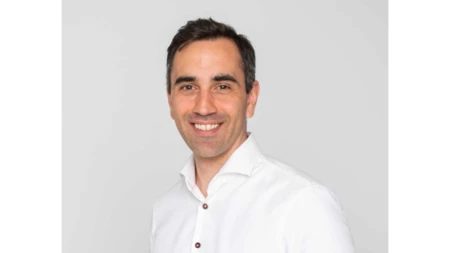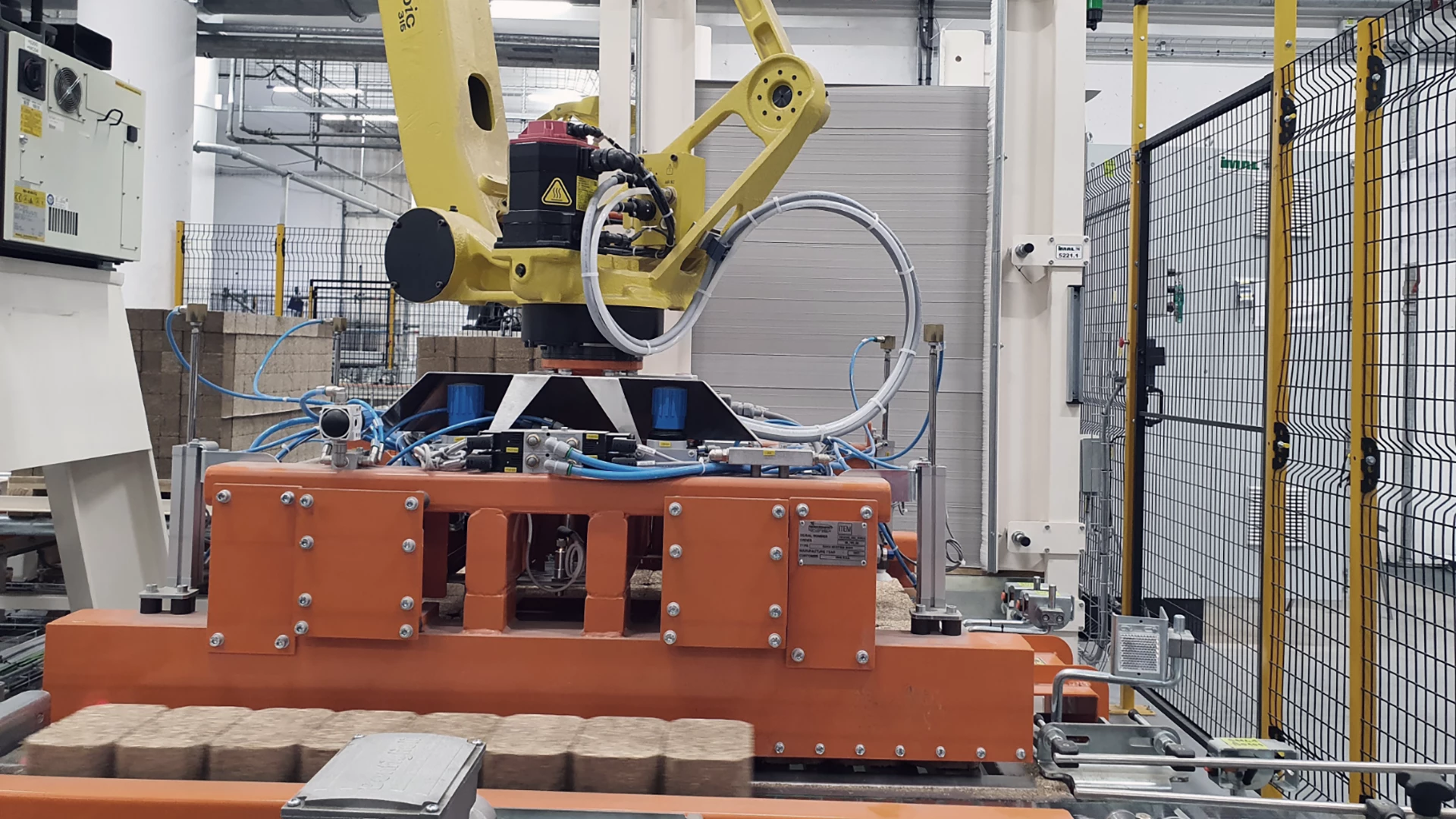
- Name:
- Nicolas Lucciarini
- Title:
- Investment Director, Daimyo
Recycling champion IceBear has big ambitions for its Dutch operation that produces composite pallet blocks out of recycled waste wood and green energy. After securing financing via a green bond issuance with Nordea’s help, the company recently hit its first major production milestone.

When it comes to circular economy, few companies come as close to full circle as IceBear.
The company, part of Kvitebjørn Energi A.S., operates a combined heat and power plant that generates renewable energy from wood chips, which is in turn used to produce recycled waste wood pallet blocks. The surplus energy is harnessed to heat water, which is sold for weed control and other environmentally-friendly uses.
Back in 2020, Nordea helped IceBear issue a green bond to finance the project, which hit a major milestone in January with the production of its first composite pallet block. Pallet blocks are the cubic wooden connectors between the top and bottom layers of the wooden pallets used to transport goods.
"Hundreds of people have worked hard over the last couple of years to build a truly sustainable business – I am extremely proud of the team effort to reach this milestone,” says IceBear CEO Halbe Pomper.
Norway-based Kvitebjørn Energi acquired the combined heat and power plant in Steenwijk, the Netherlands, in 2015. The plant burns wood chips that originate mostly from the pruning of nearby forests and wooded areas to produce steam. That steam is led through a turbine to generate green electricity that can be sold to the grid – enough to power around 5,000 households. In addition, the process produces large amounts of thermal energy. In acquiring the plant, Kvitebjørn decided to make use of the surplus energy.
“It was a good energy plant,” says Nicolas Lucciarini, Investment Director at Daimyo, which owns Kvitebjørn. “We wanted to take the plant a step further and use the energy and waste to produce new products, to give new life to them.”
The company settled on recycling wood, a resource with a large potential when it comes to recycling.
“The volumes are huge, with around 190 million tonnes of waste wood generated each year in the EU. And only a small fraction of it is recycled into new products,” says Lucciarini.
We wanted to take the plant a step further and use the energy and waste to produce new products, to give new life to them.


For its product, the company chose composite pallet blocks, which are increasingly sought after by pallet manufacturers due to their superior mechanical properties. While the traditional solid wooden blocks can change shape and swell with changes in humidity and temperature, composite blocks retain their shape and dimensions better. That precision and consistency becomes even more important as pallet manufacturing becomes increasingly automated.
What’s more, at the end of the pallet’s lifespan, it can be recycled again – pallet block included – in IceBear’s process, bringing the process full-circle.

To get the project off the ground, the company needed financing of EUR 35 million, a fairly substantial investment, and consulted with its Nordea advisors. Thomas Knudsen, who works on Nordea’s Debt Capital Markets team in Norway, was called on to look at whether bond financing would be an option.
“Project financing is generally not something that’s easy to do in the bond market,” Knudsen says. “The equity investors get the full upside if the project succeeds, while bond investors get their coupon payments at best, and the full downside if the project goes bust.”
However, given the project’s strong green profile, Nordea advised IceBear to pursue a green bond issuance.
Jacob Michaelsen, head of Sustainable Finance Advisory at Nordea, helped set up IceBear’s green bond framework. IceBear obtained a second party opinion on the framework from Cicero Shades of Green, which gave the project its highest green rating – dark green.
“It’s so rare that you can base a green bond framework on circular economy, given all of the components required to achieve circularity,” says Michaelsen. “But that’s really what IceBear’s project is all about.”
The project’s green credentials, coupled with its parent company’s successful track record on other sustainability projects, made it possible to place the bond in the market, says Knudsen.
It’s so rare that you can base a green bond framework on circular economy, given all of the components required to achieve circularity.
Now that the first block has been produced, the company is moving full-throttle to ramp up production.
The composite blocks are proving particularly competitive in terms of pricing compared to traditional solid wood blocks, which are linked to timber prices. With the situation in Ukraine, wood prices have surged, since Ukraine, Belarus and Russia are all important suppliers of wood to the EU.
IceBear also has the competitive advantage of relying on its own renewable energy source, which in large part shields it from soaring energy prices, Lucciarini told investors at a recent quarterly update, adding:
“What we’re doing in Steenwijk is not only good for the environment. It’s also a very solid business.”
Nordea's Sustainable Finance Advisory team helps clients navigate fundamental changes in the financial markets as the global economy shifts towards becoming sustainable and low-carbon. Find out more about our sustainable product offerings and holistic advisory services.
Learn more
Sustainable banking
Morningstar Sustainalytics has recently published a new report identifying companies that are taking steps to reduce emissions, set actionable targets and implement good governance practices. Nordea is highlighted for its significant progress in reducing emissions and its comprehensive climate targets.
Read more
Sustainability
Amid geopolitical tensions and fractured global cooperation, Nordic companies are not retreating from their climate ambitions. Our Equities ESG Research team’s annual review shows stronger commitments and measurable progress on emissions reductions.
Read more
Sector insights
As Europe shifts towards strategic autonomy in critical resources, Nordic companies are uniquely positioned to lead. Learn how Nordic companies stand to gain in this new era of managed openness and resource security.
Read more